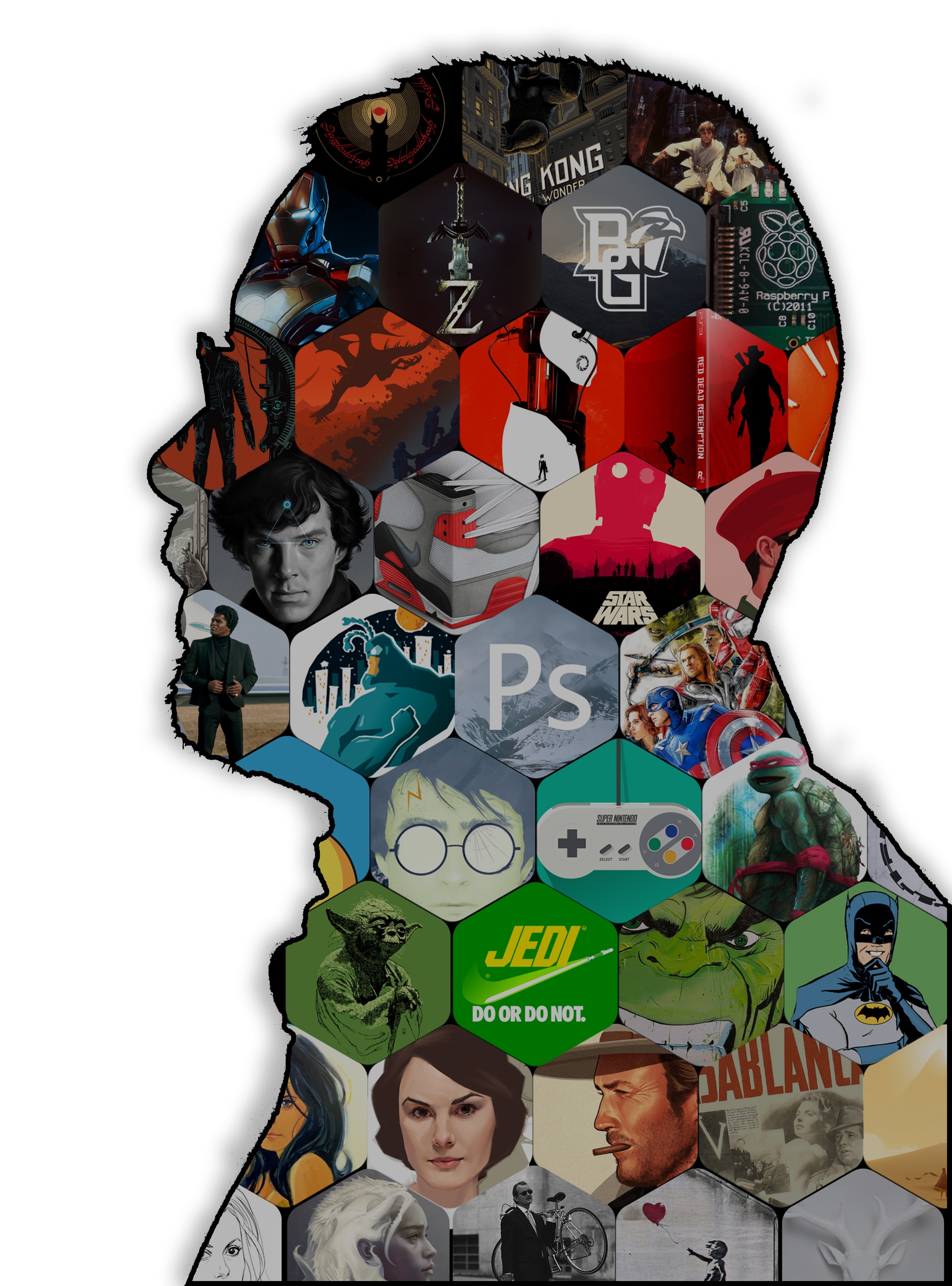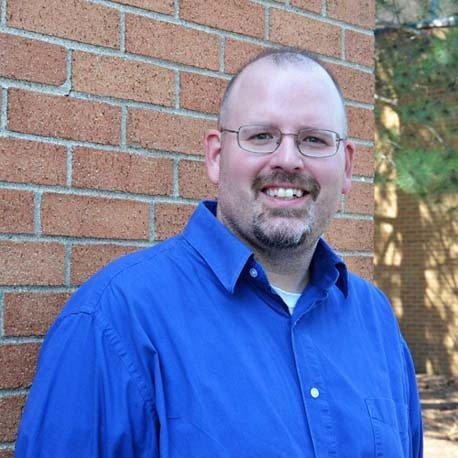Interview with Dr. Ethan Jordan

Please tell us a bit about yourself!
I’ve been teaching composition courses for the past 14 years or so, and I’ve also had a variety of teaching opportunities in film, multimodal communication, video game studies, and graduate courses in pedagogy. My family likes to joke that I have a “doctorate in video games,” which is kind of true. I went to school (from Head Start to grad school) for 23 years in a row. In my spare time, I love taking walks with my wife, building Legos with my son, and consuming any media I can!
How long have you been teaching in the MA Online program? What are some of the benefits you see in online education?
I’ve taught in the online MA program off and on for the past 3 years, and I’m teaching all grad courses this 2019-2020 academic year. I like that online teaching requires us to make visible a lot of invisible thinking; it requires me to unpack my teaching methods in face-to-face courses and change their modality. In other words, I have to reexamine what I do in the classroom and make it work in an online space, so I’m essentially remixing my teaching as I go. Students also get the benefit of doing the same, which I hope helps cement ideas for them in remixing their own responses and engaging with the course ideas.
Does your teaching philosophy change whether you are teaching in person or online? What about your teaching style?
I hope that neither my philosophy or style of teaching change too much in the online space! The goal is to translate what I find successful in-person for the digital work we do in online courses, but I also want to learn from students as much as I can. All of our concerns with writing and teaching students to write are partial, subjective, and never complete. If I get to teach online MA students, I also learn their ways of knowing and being as teachers and researchers. My philosophy is always about building knowledge with students, rather than transporting it to them, so the online space certainly helps us to build a body of work and ideas together digitally.

Dr. Ethan T. Jordan
We know that teaching is only part of what you do at BGSU and beyond. What are some current research projects or service roles you are taking on?
This year, I’m beginning service work in the department as coordinator of the Digital Pedagogy Collective, which is a group dedicated to expanding digital teaching methods and skills in the English department at BGSU. The group will facilitate instructional sessions throughout the year to enhance instructors’ digital repertoires and, as a result, create better outcomes for student learners. My research is always focused on the classroom, so I’m exploring assignment sequences that deal with aural rhetoric, and I’m also looking at the impact of component content management in course design. I also actively aid in graphic design projects for the department and for local groups in the Bowling Green area, including the city of Bowling Green, La Conexión, and my local church.
What would you say you are most proud of either as a teacher, researcher, or member of the academic community?
I’m most proud of the fact that I’m helping students. Ever since I was a kid and helped my neighbors in grade school with their homework, it’s the same feeling; I am proud that my work helps anyone really, and I’m appreciative that I get to do this for a living because I find it quite fulfilling. I’m also proud that I have found ways to take my personal interests and make them work in academia.
What is the best advice you could give future teachers?
Always err on the side of kindness and positivity. I don’t believe we learn from harsh criticism, punishment, or breaking people down. I want to build up students, and I want to learn from them as well. I also am of the firm belief that I can’t make anyone learn anything; I can only provide an environment where students can learn. As I teacher, I also think we must be kind. Always.
Updated: 11/07/2019 09:41AM
